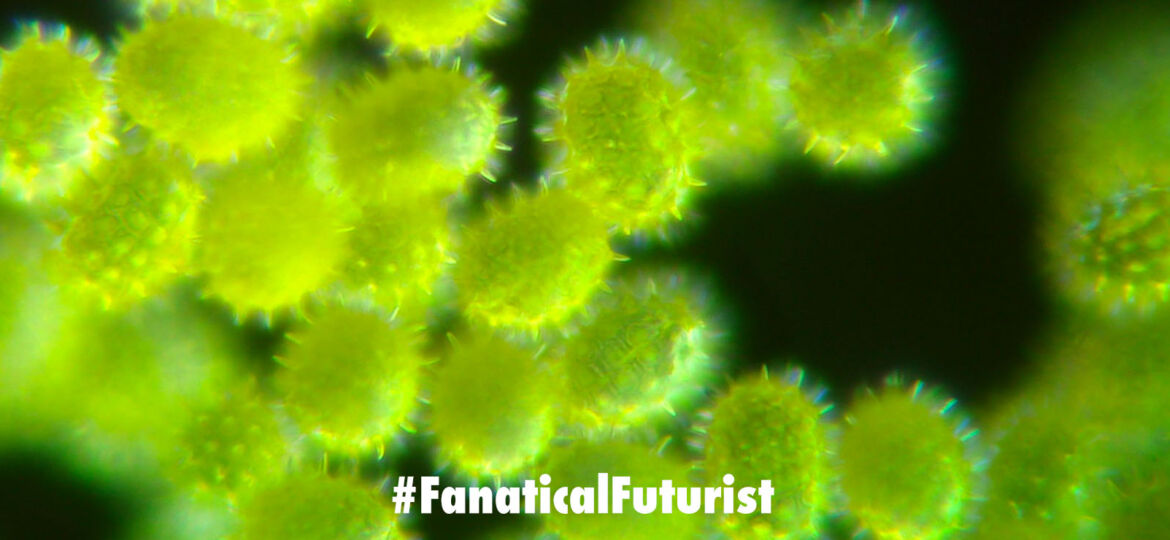
WHY THIS MATTERS IN BRIEF
Everything in the universe is made from material, whether it’s biological or synthetic, and as we unravel natures mysteries we could create products that, literally, last forever.
It’s the most durable biological material you’ve never heard of, Sporopollenin, and it makes plastics and other materials shelf lives of up to 1,000 years look ridiculously short, and if organisations can commercialise and manufacture it then it could become one of the most valuable materials in the world. This naturally occurring polymer coats and protects individual grains of plant pollen and just to put how tough it is into perspective it’s been found intact in 500 million year old sediments. It’s that tough and durable, and it makes every other material on Earth look puny by comparison.
Synthetic biologists at Colorado State University are now attempting to manufacture Sporopollenin in the lab using plants, and to control its properties using gene parts designed for specific functions, known as genetic circuits, and their goal is to produce coatings that could one day protect ships, bridges and other infrastructure that crack as they age. And millions more products asides. And it looks like they’ll achieve their goals thanks to a $1.7 million grant from the Defense Advanced Research Projects Agency (DARPA), part of the US Department of Defense. DARPA is known for funding extremely difficult, high risk, high reward science programs, such as turning plants into surveillance devices, curing pandemics as soon as they appear, and building the first generation of telepahic warfare systems and much more. The award to CSU researchers may be eligible for another $2.1 million for two additional years, if their methods prove successful.
The project’s lead is Mauricio Antunes, special assistant professor of biology at Colorado State University. Antunes will work closely with co-collaborator June Medford, professor of biology. Antunes and Medford have worked together in plant synthetic biology for 14 years. Joining in the effort from Medford’s lab will be Kevin Morey, special assistant professor of biology.
The other key player in the partnership is Matthew Kipper, associate professor in the Department of Chemical and Biological Engineering and School of Biomedical Engineering. A materials scientist, Kipper will help the team characterise the structure and function of the sporopollenin-like materials they make using specialized, high-resolution microscopy and spectroscopy.
Making sporopollenin in quantities large enough to become commercially viable is a challenge no scientist has yet overcome, and this polymer is nature’s original tough nut to crack – it’s so resistant is it to degradation that scientists have trouble taking it apart and identifying how the polymer is formed.
“The biosynthetic pathway of this polymer is very complex,” Antunes said. “In order to replicate it, we will need to precisely coordinate the expression of several genes in plant tissues that do not naturally produce this polymer.”
If the scientists are successful, they will produce a “tunable, scalable polymer that can be sprayed onto bridges, hulls and ships, making them impervious to rust or decay.” And not just for a couple of years, but potentially forever…
With proven expertise in making genetic circuits and inserting them in plants, the team plans to transform the tissue of Arabidopsis roots and moss, using their specially designed DNA. Then, the plants should express new genes, and produce the polymer. Plants are ideal to use because they already have a basic biosynthetic pathway in place that the scientists can build on.
“Life has existed for billions of years,” Medford said. “Plants have come up with a better way to live on our planet, than we have with concrete and metal. If we can engineer living materials, we can come up with sustainable ways to copy what life has already done so well.”
So one day could your smartphone, coffee cup or even post it notes, and of course ships, live forever? Maybe – and it’d all be thanks to the miracle of nature (and science).
Source: CSU

















[…] about how scientists had discovered the longest lasting material – a biomaterial that could last over 500 million years – and now we have a new entrant for the world’s toughest material after scientists measured the […]